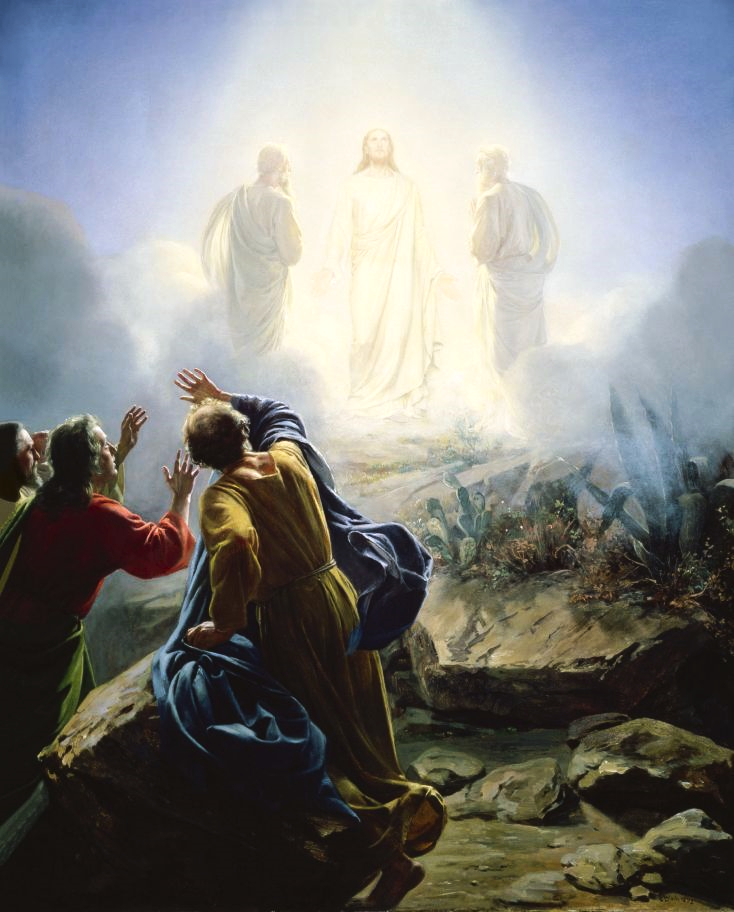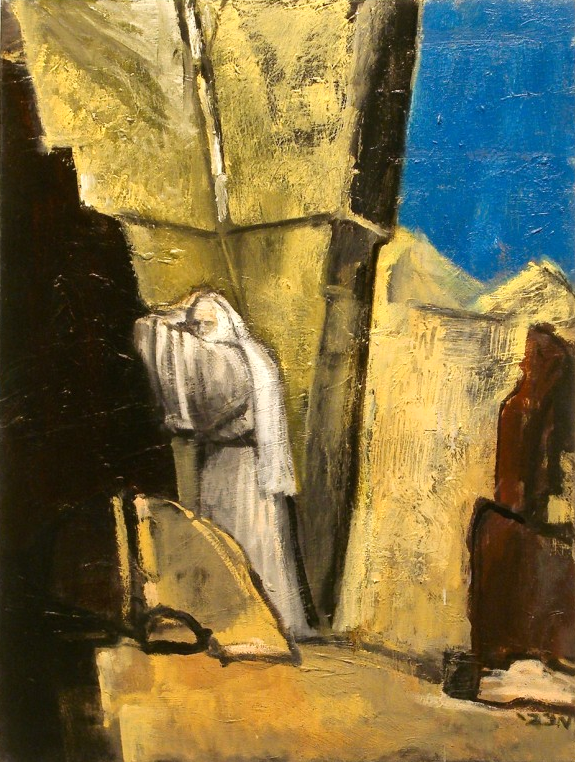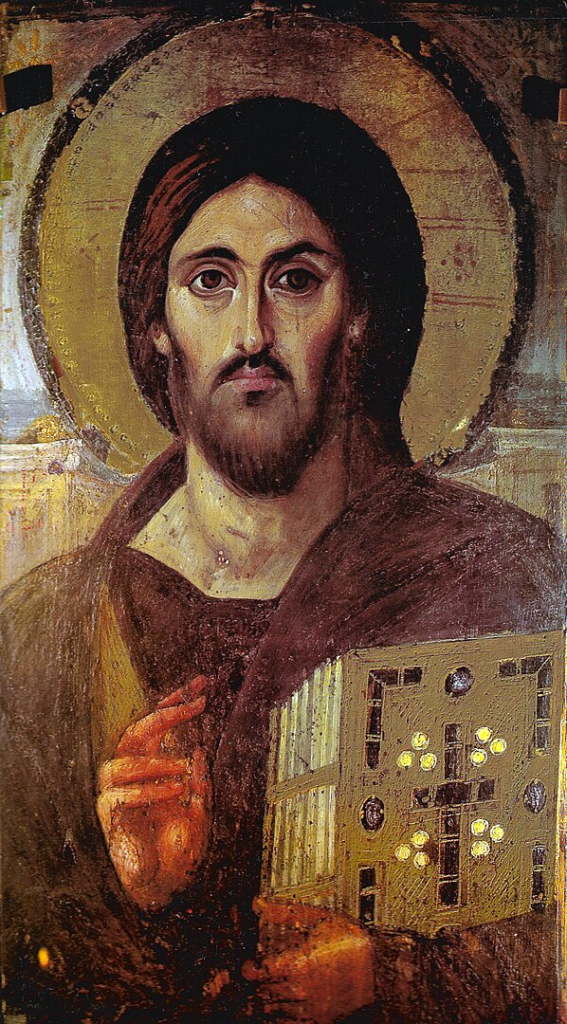Translation of the Holy Gospel According to Matthew
At that time Jesus took Peter and James, and John his brother, and bringeth them up into a high mountain apart: and He was transfigured before them. And his face did shine as the sun: and His garments became white as snow. And behold there appeared to them Moses and Elias talking with Him. And Peter answering, said to Jesus: Lord, it is good for us to be here: if Thou wilt, let us make here three tabernacles, one for Thee, and one for Moses, and one for Elias. And as he was yet speaking, behold a bright cloud overshadowed them. And lo, a voice out of the cloud, saying: This is My beloved Son, in Whom I am well pleased: hear ye Him. And the disciples hearing, fell upon their face and were very much afraid. And Jesus came and touched them, and said to them: Arise, and fear not. And they lifting up their eyes saw no one, but only Jesus. And as they came down from the mountain, Jesus charged them, saying: Tell the vision to no man till the Son of Man be risen from the dead.
From Pope Benedict XVI’s Homily for Mass and Dedication of the New Parish…, March 20, 2011
The Transfiguration.
The Evangelist Matthew has told us what happened when Jesus, taking with him three of his disciples — Peter, James and John — climbed a high mountain. While they were up there, on their own, Jesus’ face, and likewise his garments, became radiant. This is what we call “Transfiguration”: a luminous, comforting mystery. What is its meaning? The Transfiguration is a revelation of the Person of Jesus, of his profound reality.
In fact, the eye witnesses of the event, that is, the three Apostles, were enfolded in a cloud, also bright — which in the Bible always heralds God’s presence — and they heard a voice saying: This is my beloved Son, with whom I am well pleased; listen to him (Matt 17:5). This event prepared the disciples for the Paschal Mystery of Jesus: to endure the terrible trial of the Passion and also to understand properly the luminous event of the Resurrection.
The narrative also speaks of Moses and Elijah who appear and talk with Jesus. Actually, this episode is related to another two divine revelations. Moses climbed Mount Sinai and there received God’s revelation. He asked God to show him his glory but God answered Moses that he would not see his face but only his back (cfr. Exo 33:18-23)
God made a similar revelation to Elijah on the mountain: a more intimate manifestation, not accompanied by a storm, an earthquake or by fire, but by a gentle breeze (cfr. 1 Kings 19:11-13).
Unlike these two episodes, in the Transfiguration it is not Jesus who receives the revelation of God; rather, it is precisely in Jesus that God reveals himself and reveals his face to the Apostles. Thus, those who wish to know God must contemplate the face of Jesus, his face transfigured: Jesus is the perfect revelation of the Father’s holiness and mercy.
Let us also remember that on Mount Sinai Moses also received the revelation of God’s will: the Ten Commandments. And, again, it was on the mountain that Elijah received from God the divine Revelation of a mission he was to undertake.
Jesus, on the contrary, did not receive the revelation of what he was to do: he already knew it.** Rather it was the Apostles who heard God’s voice in the cloud, commanding: Listen to him.
God’s will was fully revealed in the Person of Jesus. Anyone who wants to live in accordance with God’s will must follow Jesus, listen to him and accept his words, and with the help of the Holy Spirit, acquire a deep knowledge of them. This is the first invitation I wish to offer you, dear friends, with great affection: grow in the knowledge and love of Christ, both as individuals and as a parish community, encounter him in the Eucharist, in listening to his word, in prayer and in charity.
** NB: This is because Jesus was the full, complete, and eternal Revelation of the Father. There is nothing for Him to acquire from the Father for He has received all from all eternity. Jesus is the Incarnation of the Divine Logos (the Son) of the Father. This is all too often not understood today where it is commonplace to posit that Jesus didn’t know everything or that His commands and teachings were somehow imperfect and ill-conceived. “We know better now, we can improve things,” is too often heard. This is impossible for those who believe by Faith that Jesus is fullness of Revelation of the Father; the Logos, the Son. — PPP



